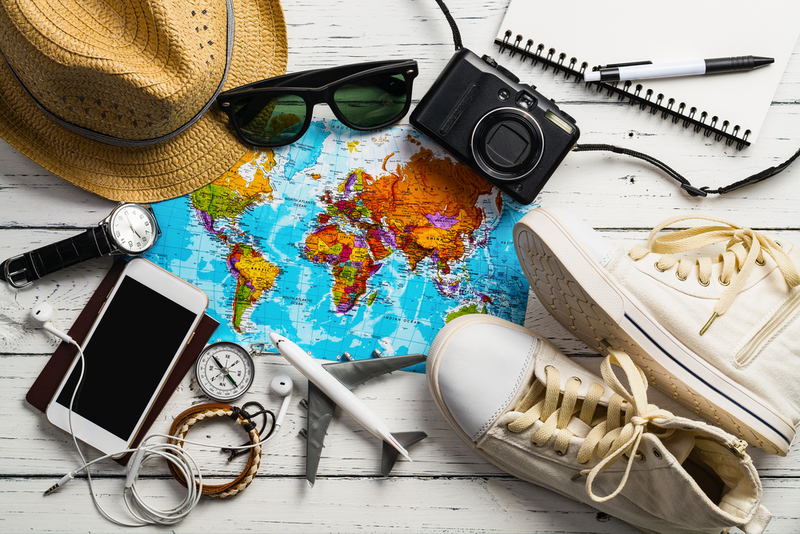Many of us want to get out of town—a pure need to get away from it all. Although some people think that traveling for escapist purposes isn’t the wisest solution to one’s problems.
Interestingly, there’s a psychological benefit to escapism. Escaping into one’s mind’s calming recesses can be an effective natural defense strategy when faced with overwhelming traumatic experiences. When a situation is too stressful, the psyche can “escape” the situation mentally and emotionally to avoid further distress and psychological harm.

As we all navigate life’s ever-changing demands and chaotic trends, a bit of travel escapism can do you a world of good. When we travel, we may be evading reality or simply taking a temporary hiatus to relax and rejuvenate. Even if you don’t plan to leave town— and travel can involve exposing ourselves and others to risk—a virtual or stay-at-home vacation can also do the trick. But the escapism will only work if you take time off to rest, rejuvenate, and fall into the escapist traveler’s cheery state of mind. It would be best if you made it real by letting your boss and family know you’ll be gone.
Step 1: Take a Look at Your Goals
This first step will allow you to look at your wants and needs objectively. Do you want to escape from the four walls of your home? Is your relationship driving you crazy? Do you need a break from your work life (or lack of work-life)? Or perhaps you want a change of scenery. Whatever it is, be candid with yourself about the various aspects of life that drive you to escape. Whether you are escaping to avoid, recharge, reset, or celebrate, it’s important to understand and appreciate your wants and needs.
Step 2: Face your Escapist Truth
Take a timeout to decide if escaping will do you good in the long run. It’s truly important to be conscious and intentional about your escapism goals to avoid an escapist mentality’s downsides. For example, if you want to escape to find temporary ease from a toxic relationship, the same challenges will likely be waiting for you once you return. But if you want to escape to figure out how to get out of the relationship and create a new life, having some time away could be incredibly valuable.

The key is to determine, without judgment, if the travel escape will reap positive rewards or if you’ll feel more anxious and stressed in the long run by returning to a personal or work situation that you’re striving to avoid. Simply put, the most beneficial escapist travel tends to be mindful and positive rather than avoidant.
Step 3: Do the Math
Now the fun begins. Wherever you’re going, now’s the time to create a dreamy itinerary. Let your imagination run free as you open your mind up to all the places you’d like to go. Stretch yourself by pondering Africa’s plains, Tuscany fields, and the down-home glories of Route 66. Then, let reality set it—especially if you’re actually going to leave town—and enjoy the fun of making a final selection based on the realities of your budget, timing, and the state of the world.
Step 4: Consider your Entourage
Escapist traveling can be done solo, with friends, or with your significant other. More gregarious spirits sometimes prefer escaping with groups of unknown souls who become friends along the way.

As you decide, imagine what the trip would be like with various people or with yourself. After considering your goals, your needs, your situation, and your safety issues, you can then decide whom (if anyone) you’d like to have along for the ride. And sometimes, the very best companion is that lovely person staring at you in the mirror.